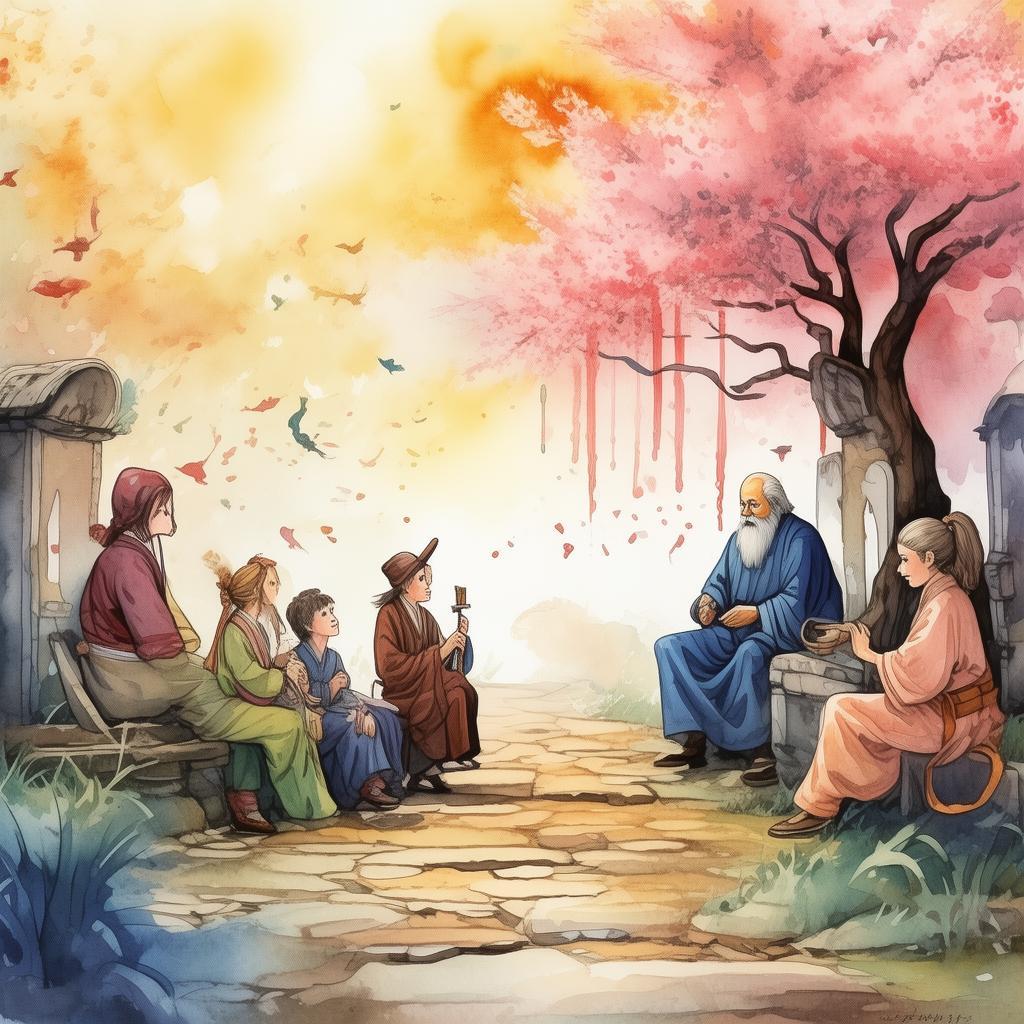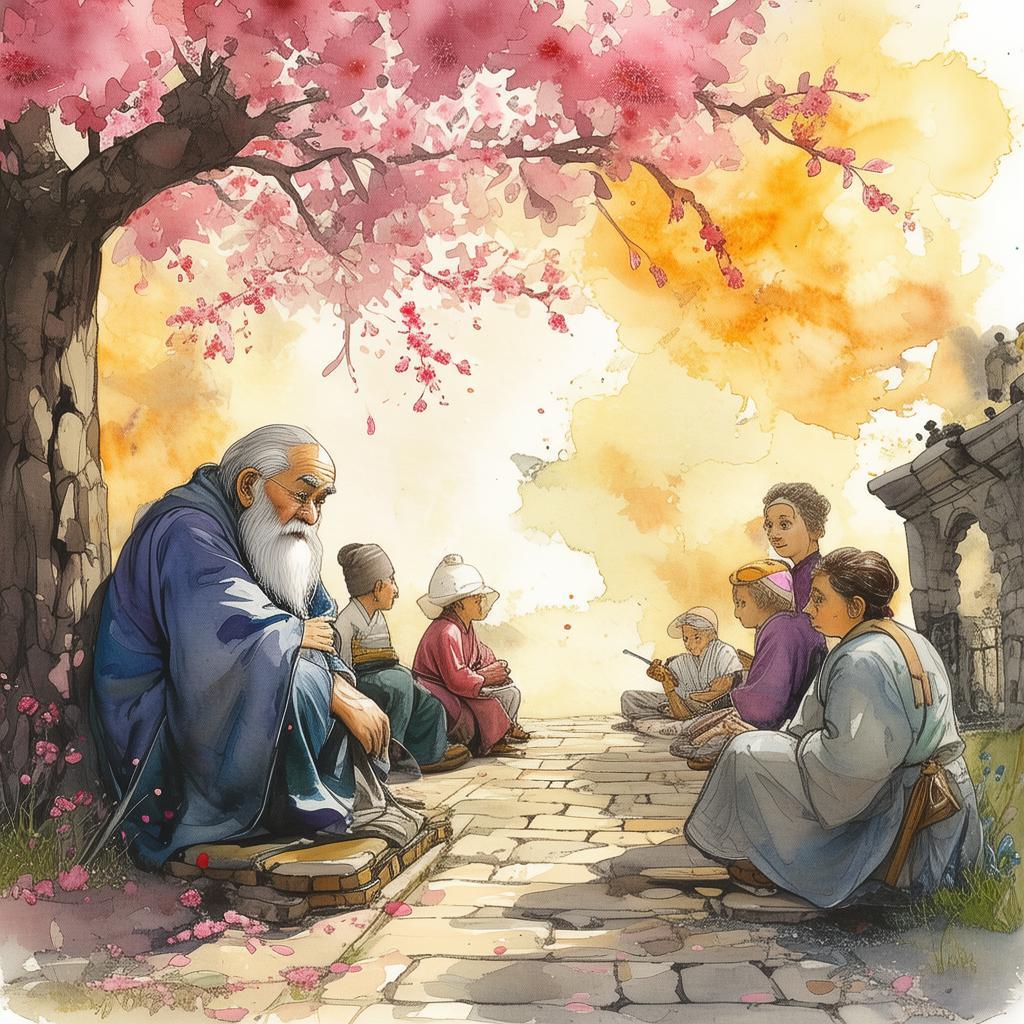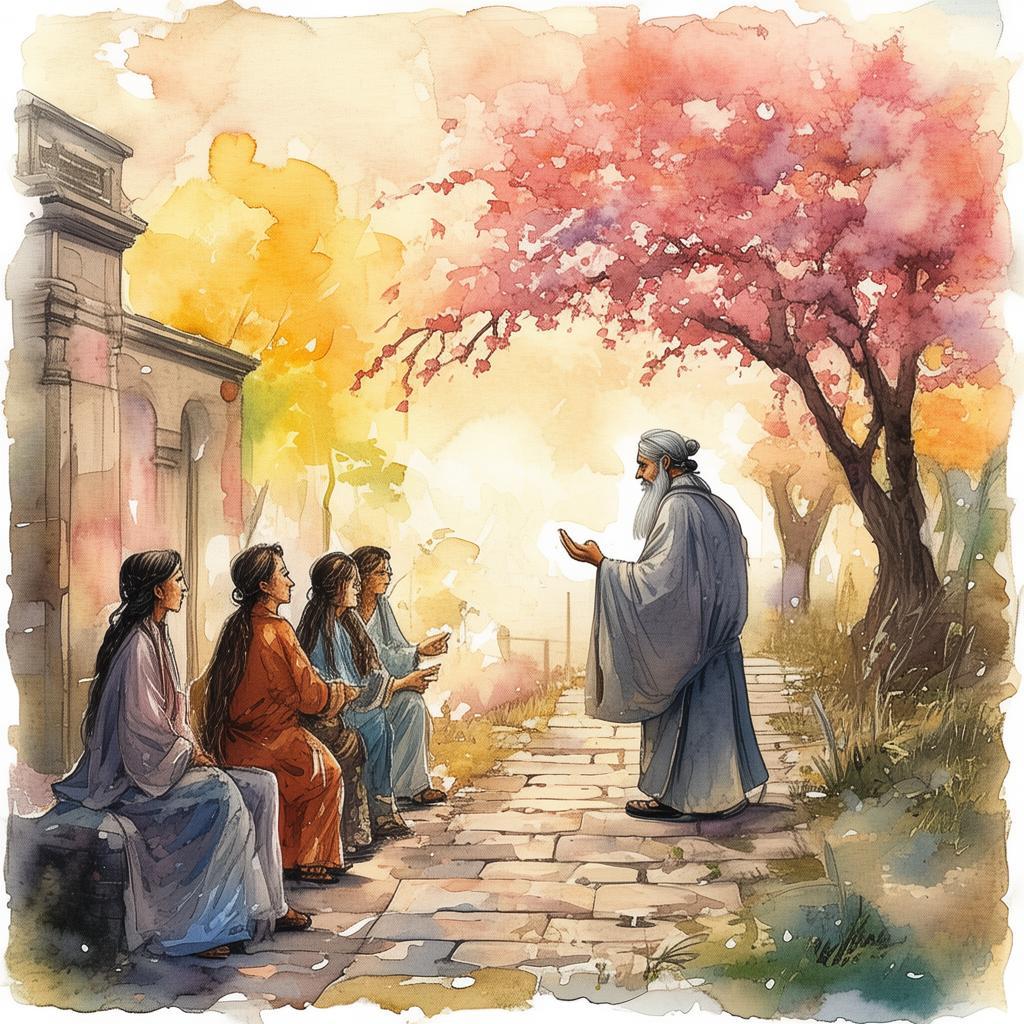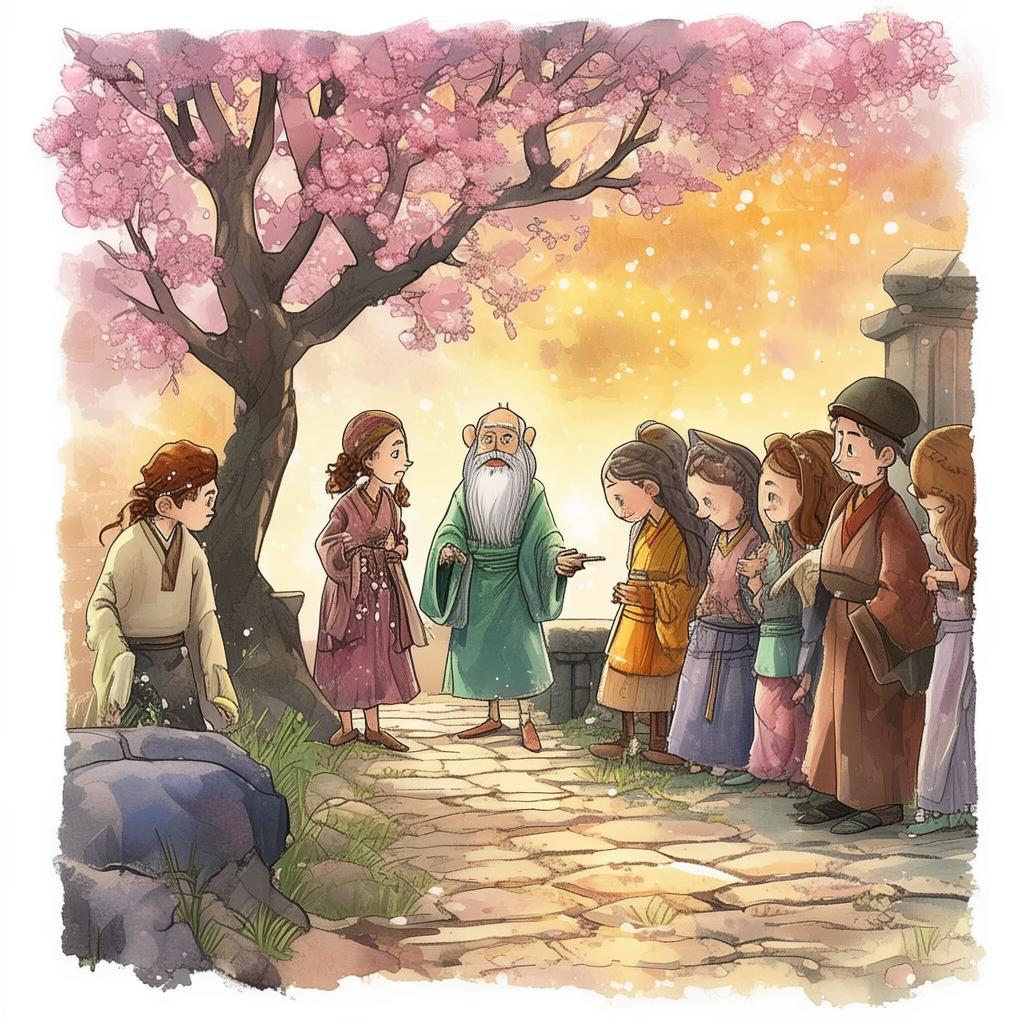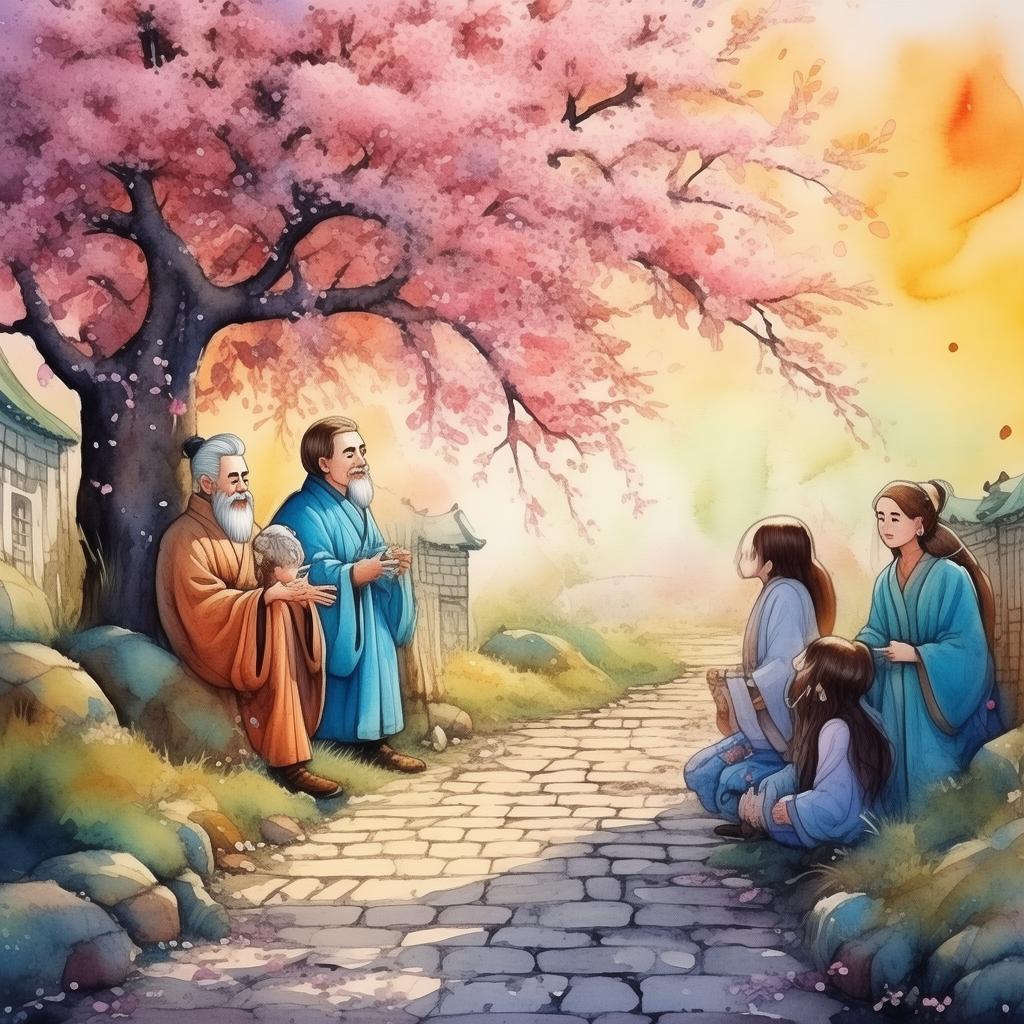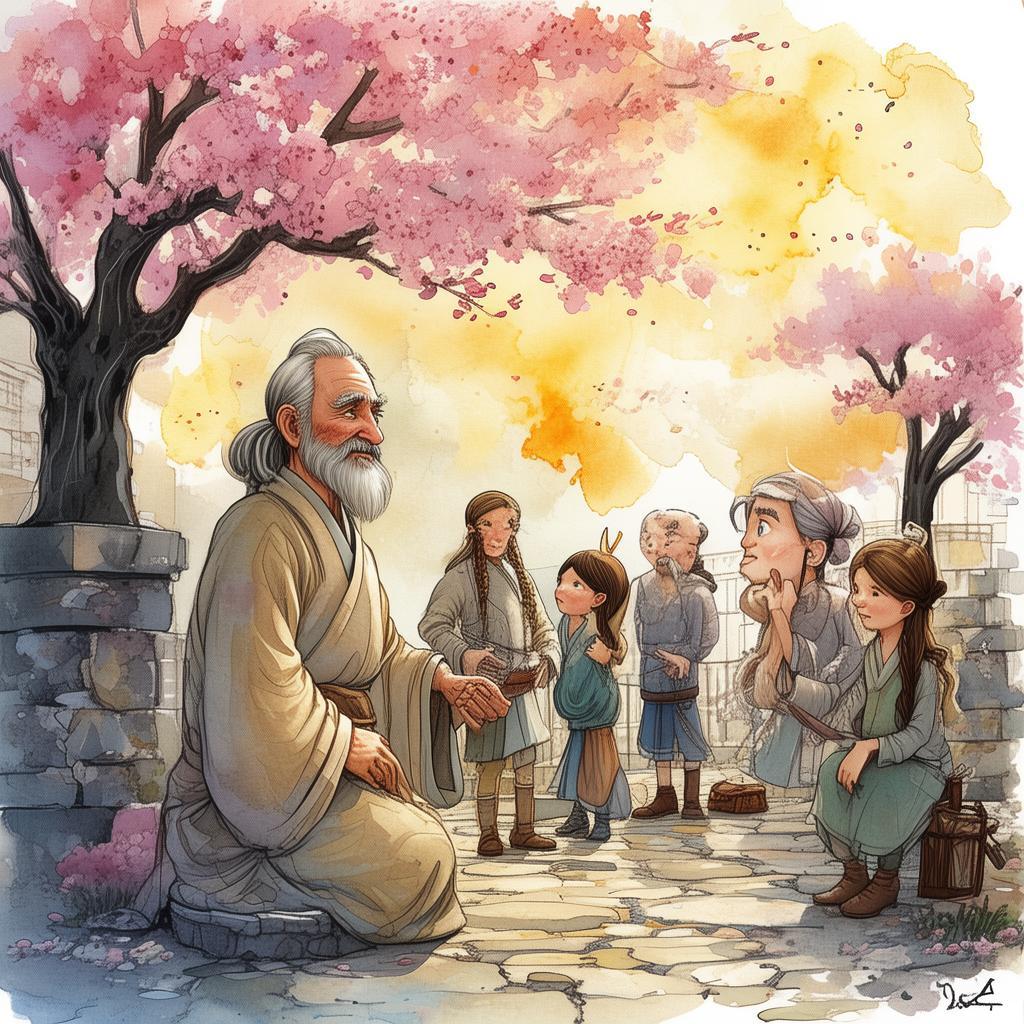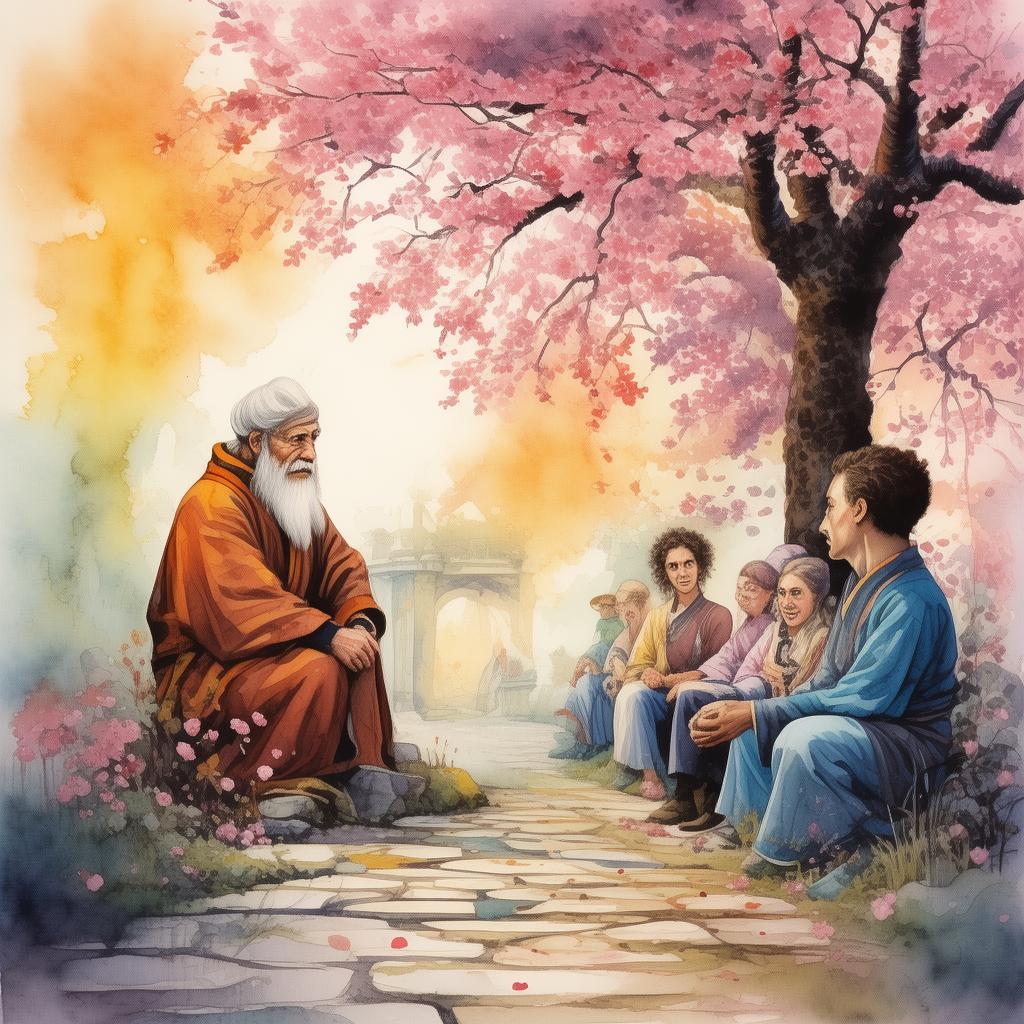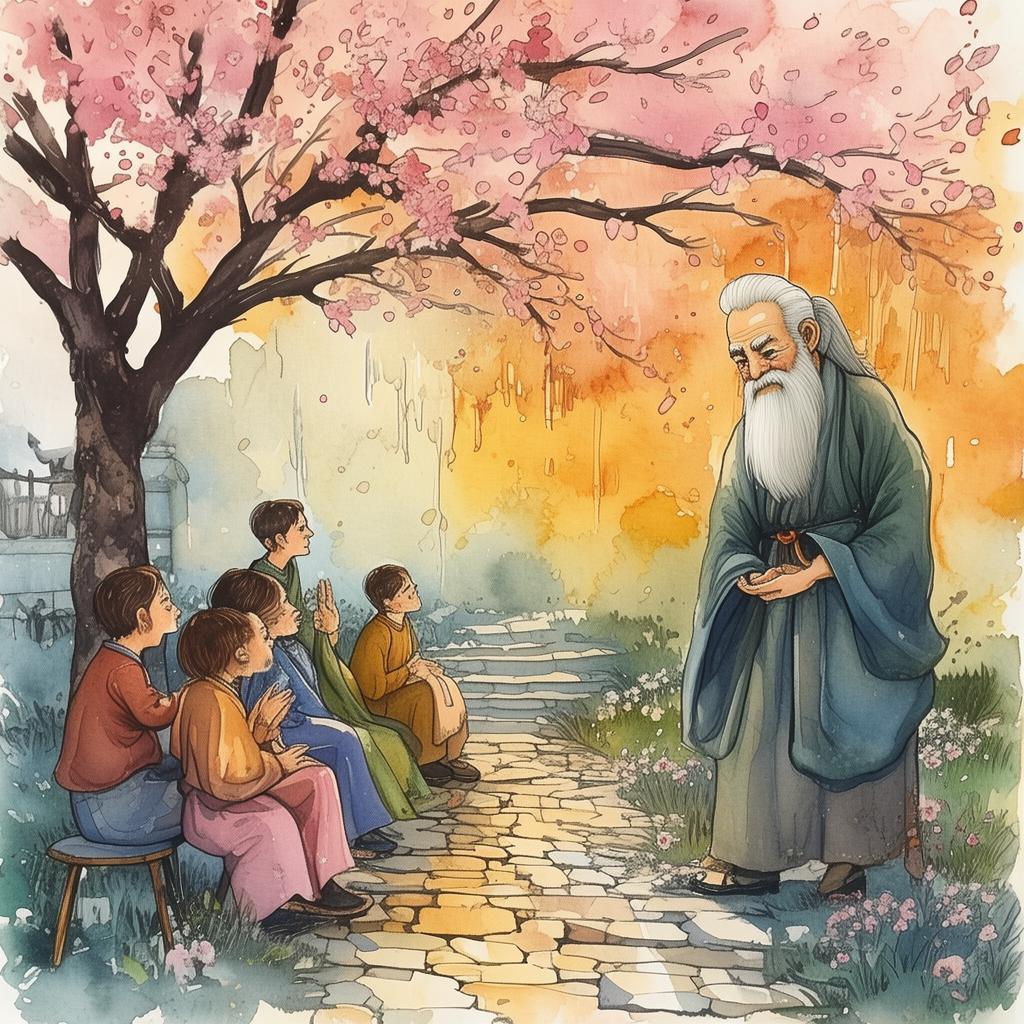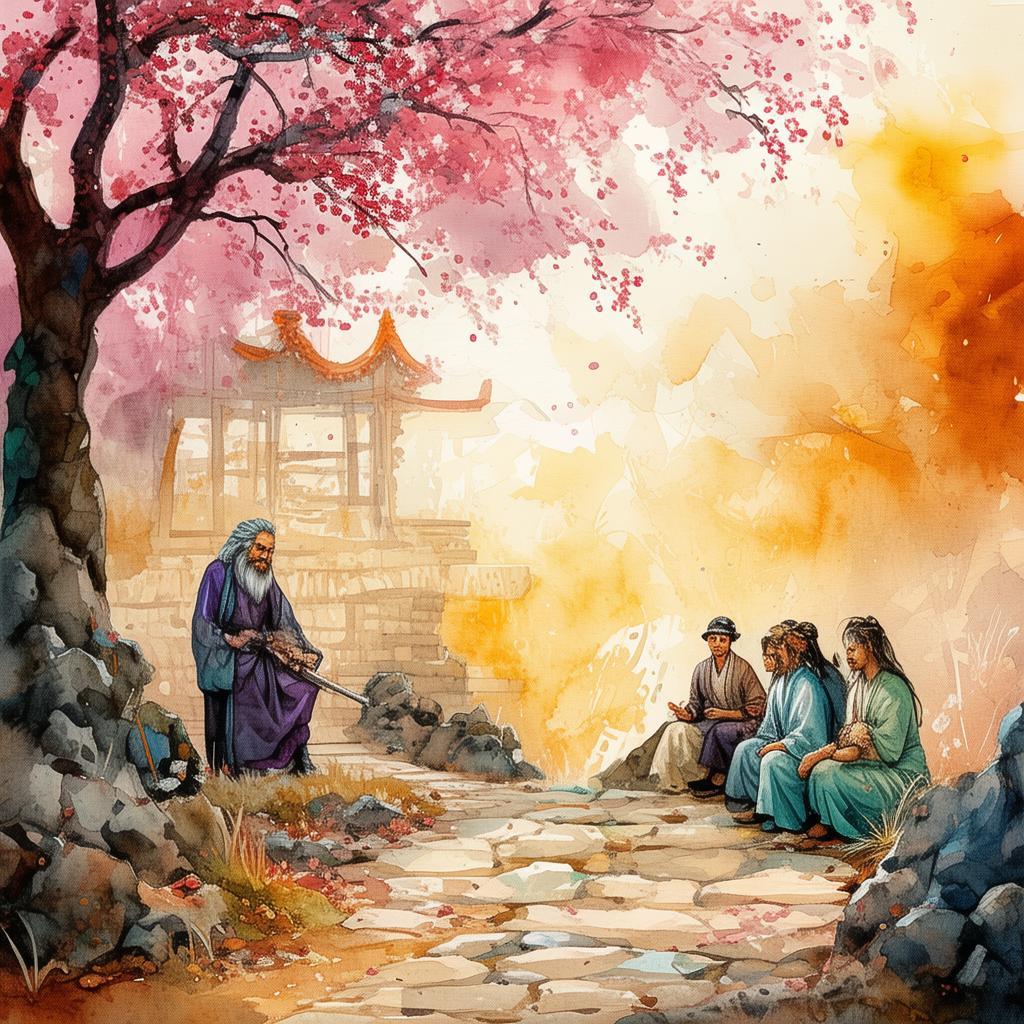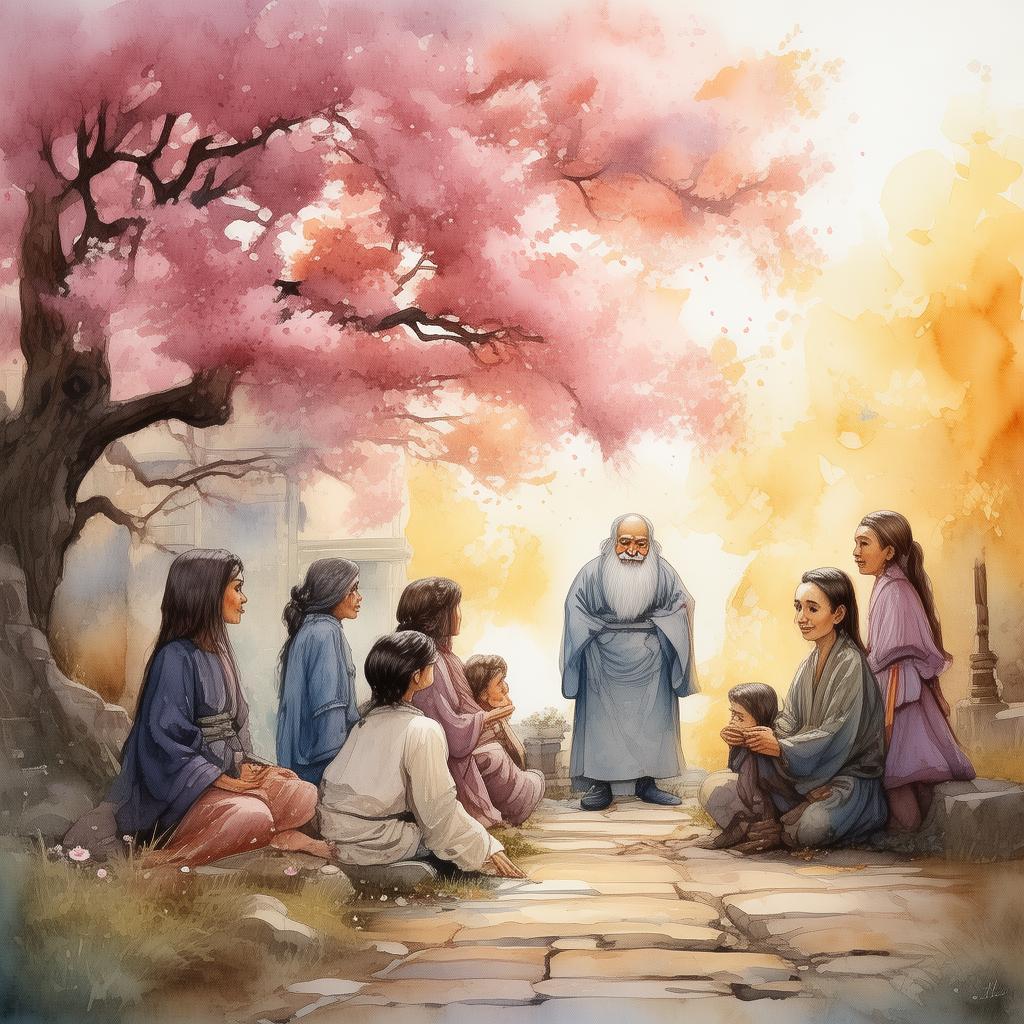The Dragon's Labyrinth: A Quest for the Heart of Wisdom
In the ancient land of Xinlong, nestled between the towering mountains and the boundless sea, there lay a labyrinth said to be the dwelling of the Dragon of Wisdom. This labyrinth was not merely a place of paths and walls; it was a riddle woven into the very fabric of reality. It was said that within its depths, the Dragon of Wisdom would grant the seeker a boon of unparalleled wisdom, but only if they could navigate the labyrinth's ever-changing maze.
Amidst the whispers of the ages, a young warrior named Ming heard the tale of the Dragon's Labyrinth. He was a man of great courage, but his wisdom was as yet untested. Ming had always believed that courage was the ultimate virtue, but as he grew older, he felt a gnawing emptiness in his chest. He needed to understand the true nature of wisdom, and the Dragon's Labyrinth seemed to be the only path to that understanding.
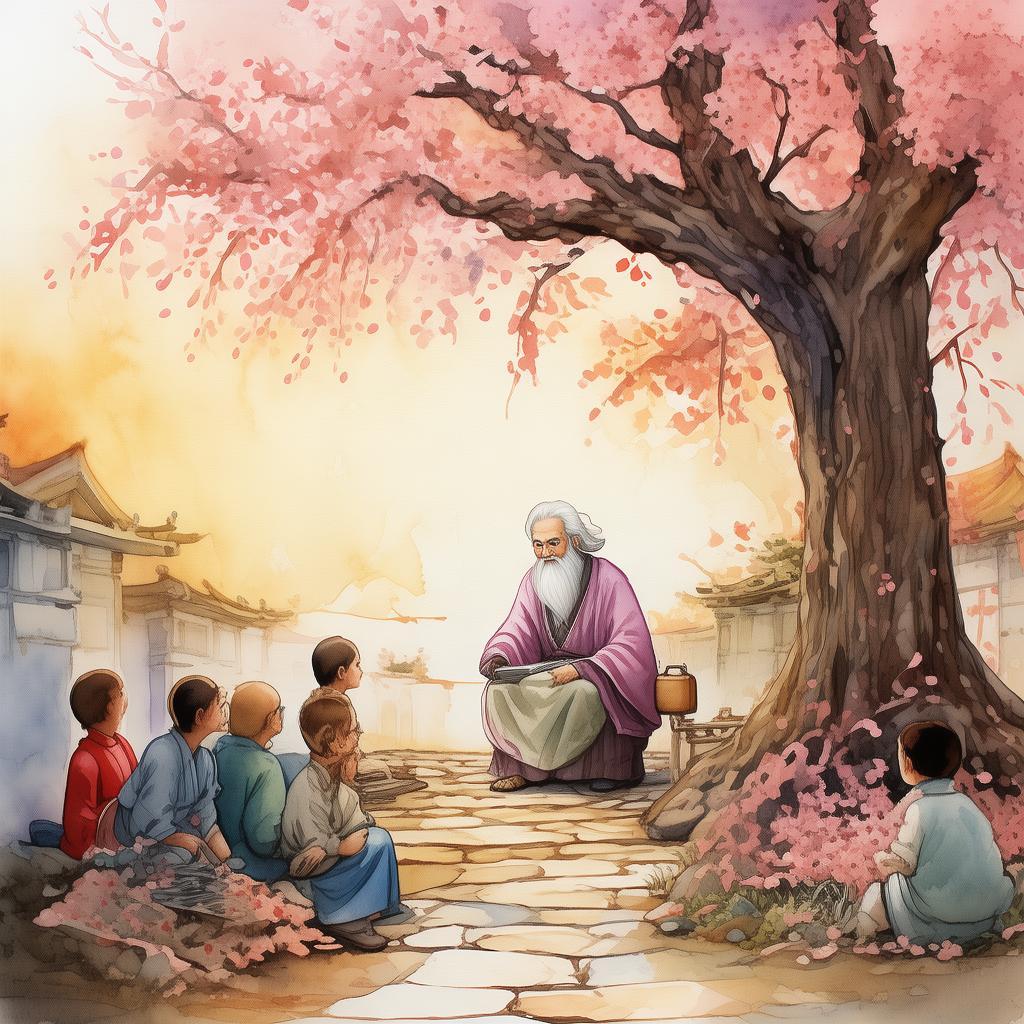
Ming set out on his quest with a heart full of determination. He wore a simple robe, a sword at his side, and a scroll of ancient runes that he believed would guide him through the labyrinth. The villagers watched him leave with a mix of awe and skepticism, for no one had ever returned from the labyrinth, much less a young warrior like Ming.
As Ming ventured into the labyrinth, he found the entrance to be a mere stone door, inscribed with intricate carvings of serpentine dragons and ancient runes. He placed his hand upon the door, and with a deep breath, he pushed it open. The labyrinth was a vast expanse of interconnected corridors, each one a different shade of stone, each one a different challenge.
The first test came in the form of a riddle posed by a voice that seemed to echo from all directions. "Why is the wise man sometimes called the blind?" Ming pondered the question, his mind racing with possibilities. He finally answered, "The wise man is sometimes called the blind because he sees the truth when others are too blind to see it." The voice praised his insight, and a path opened before him.
Ming continued his journey, encountering trials that tested his strength, his intellect, and his heart. He faced a maze of mirrors that made him question his own reflection, a room filled with statues that moved and spoke to him of the past, and a bridge that seemed to stretch into infinity, testing his courage. Each challenge brought him closer to understanding the nature of wisdom.
One particularly daunting chamber held a dragon, its scales as dark as the night and its eyes like twin stars. The dragon spoke in a voice that resonated with the echoes of time. "I am the guardian of the labyrinth. You must prove your worth to pass." Ming, unflinching, stepped forward and engaged the dragon in a fierce battle. Through sheer force of will and a deep understanding of the principles of balance, he subdued the beast.
The dragon's defeat was a turning point for Ming. He realized that wisdom was not about power or strength, but about understanding the balance of life and the harmony of the universe. The dragon nodded in approval and revealed the next path forward.
Ming pressed on, his heart now filled with a profound sense of purpose. He came to a chamber where he found a scroll written in a language he had never seen. The scroll spoke of the heart of wisdom, a place beyond the labyrinth where the seeker would find the true meaning of their quest.
With the scroll in hand, Ming reached the heart of the labyrinth. There, he found a simple stone tablet with a single word etched upon it: "Patience." Ming realized that the labyrinth had been a test of his patience, his ability to endure and to trust the process of life itself. He had found the heart of wisdom not in the labyrinth, but within himself.
Ming returned to the village as a changed man, his wisdom now a gentle, ever-present force within him. He shared his experiences with the villagers, teaching them the importance of patience and the value of the journey itself. His story became a legend, a testament to the power of wisdom and the courage it takes to seek it.
The Dragon's Labyrinth had been a riddle, but Ming had solved it. He had found the heart of wisdom, and in doing so, he had uncovered the true meaning of courage—the courage to embrace life's journey and to understand the world around him.
In the end, Ming realized that the true wisdom of the Dragon was not in the labyrinth, but in the journey itself. And with that understanding, he had found the courage to live a life of purpose and balance.
✨ Original Statement ✨
All articles published on this website (including but not limited to text, images, videos, and other content) are original or authorized for reposting and are protected by relevant laws. Without the explicit written permission of this website, no individual or organization may copy, modify, repost, or use the content for commercial purposes.
If you need to quote or cooperate, please contact this site for authorization. We reserve the right to pursue legal responsibility for any unauthorized use.
Hereby declared.
